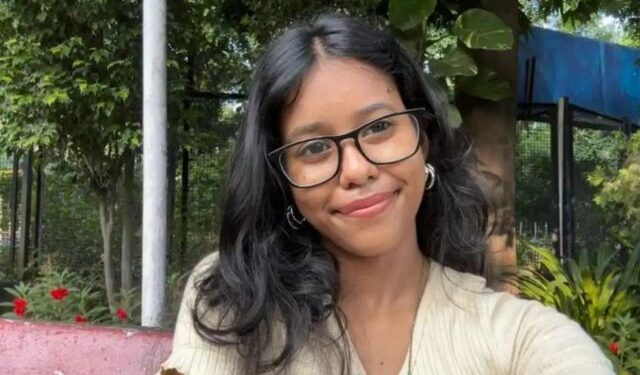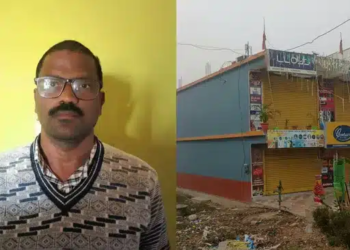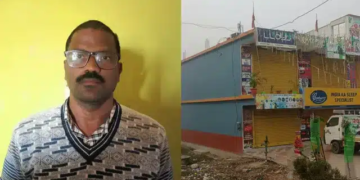The body of 19-year-old Delhi University student Sneha Debnath was found floating in the Yamuna River beneath the Geeta Colony flyover after a 6-day search.
Her family confirmed the identity Sunday evening, sparking public outrage and demands for accountability.
Sneha, a resident of Paryavaran Complex, South Delhi, and a native of Tripura, was last seen on July 7. Her handwritten note indicated she intended to jump from the Signature Bridge. A cab driver later confirmed dropping her there, and technical surveillance validated the location.
Despite the bridge’s reputation as a suicide-prone area, friends and family members highlighted that no CCTV cameras were operational at the time. “It’s a high-risk zone, yet the surveillance infrastructure is practically nonexistent,” a friend said.
During the multi-agency search involving NDRF and local police from Nigam Bodh Ghat to Noida, teams recovered her body on Sunday. However, concerns over jurisdictional ambiguity—falling under several police stations—may have hampered coordination and urgency.
Sneha was pursuing a BA in Mathematics at Atma Ram Sanatan Dharma College and hadn’t withdrawn funds in months, suggesting deep emotional distress. Her family, devastated by the loss, issued a call for improved surveillance, clearer jurisdiction at key urban sites, and public transparency.
“This isn’t just about one student. It’s about the safety of every citizen,” the family stated, demanding immediate infrastructure audits and policy reform.
As Delhi mourns Sneha, her story underscores a pressing need: urban spaces must not remain blind spots in moments that matter most.





























